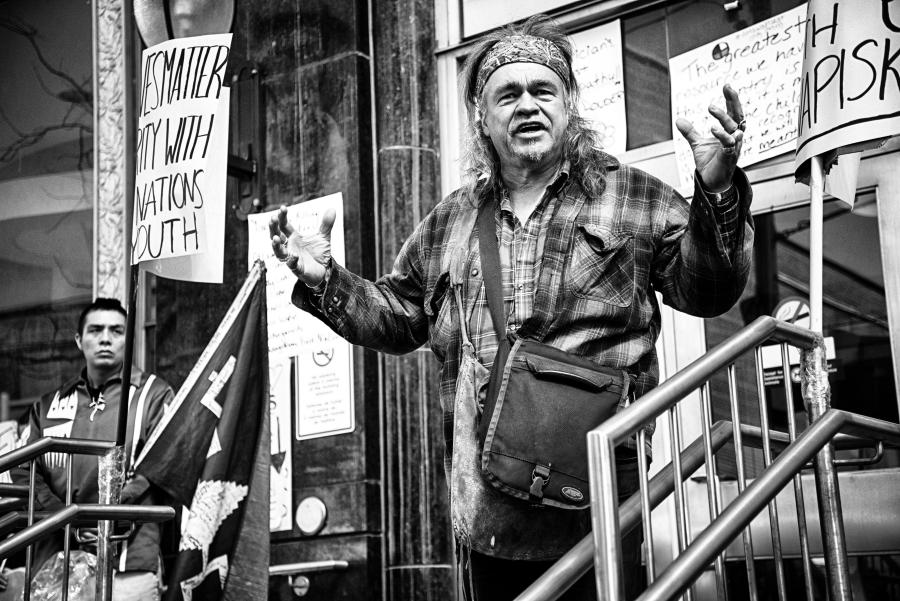Ellen Lutz interviewed Adelard Blackman, special emissary for Chief Elmer Campbell and the people of Buffalo River Dene Nation, during the July’s session of the U.N. Working Group on Indigenous Populations. Blackman lives in the northern part of the Canadian province of Saskatchewan.
What has the International Decade of the World’s Indigenous Peoples meant for you?
The International Decade has created more exposure for indigenous peoples around the world and the problems they face. The world now knows that indigenous people exist. While the United Nations made an effort to raise worldwide awareness about indigenous peoples during the decade, countries made every effort to downplay it. As a result, as someone once said, “it was one of the quietest decades as far as indigenous peoples were concerned.”
Can you give an example of what states did to downplay it?
The most obvious example is the failure by states to complete negotiations for a Declaration on the Rights of Indigenous Peoples. Over the Decade, only two of the 45 articles in the Draft Declaration have been adopted. On top of that, over the Decade states like Canada and the United States have done their best to extinguish the rights of indigenous peoples, especially those related to land and natural resources.
Do you see such state action as related to the phenomenon of globalization?
For the people of my community, the term “globalization” does not have much meaning—this is a largely academic and political term reserved for U.N. meeting rooms.
However, the impact of such phenomenon is a very present and often deadly force in our community and indigenous communities all over the world.
The globalization of culture, resulting in the destruction of our traditional languages and ways of living, and the globalization of trade and the economy continues to have severe implications for us, starting with the destruction of our environment. For example, Canada is profiting and contributing to the globalized economy through its plundering and never-ending exploitation of our natural resources, taken from our land in breach of our treaties. Canada is one of the wealthiest countries in the world; but it should be remembered that this money is dirty, stolen from our territories that were never ceded in the signing of our treaties.
When the transnational corporations, supported by the Canadian government in blatant disregard of our treaties, bring development to our territories without free and prior informed consent, they intentionally make sure that we as indigenous peoples cannot get work. Our people live in reserves that have 80 to 90 percent unemployment, massive housing shortages, chronic health problems, education cutbacks, et cetera. In this climate we are currently experiencing loss of cultural identity; we are being dispossessed of our fundamental connection to our lands; and we are experiencing a total disregard for our spirituality and cultural values.
The most serious manifestation of this ongoing oppression in my community is the suicide rate among our young people. That rate has jumped 200 percent in the last 10 years, and is now at epidemic proportions. Young people are our future. When they take their own lives they reveal how helpless they feel. Indigenous youth are dying because they have no hope for the future.
Would another International Decade help?
I think so. You cannot fix 500 years of destruction in a mere 10 years. There are many key issues that still have to be addressed including self-determination, ownership of resources, and recognition of territory.
With respect to the problems indigenous people face in Canada, I think there can be a win-win solution between my people, the government, multinational corporations, and the people at large. This will require that the government and everyone else acknowledge that we, as indigenous people, exist, and that we never gave up the right to our territory. It then will require ensuring that there are legal and political mechanisms that protect our rights as indigenous peoples. And it will require ensuring that our young people have a future that they feel is worth living for.
The United Nations provides a forum in which indigenous peoples can commence open and honest dialogue among themselves and, where possible, with states and the United Nations itself. Through such a dialogue, I believe we can find positive and lasting solutions to the problems indigenous peoples face.


